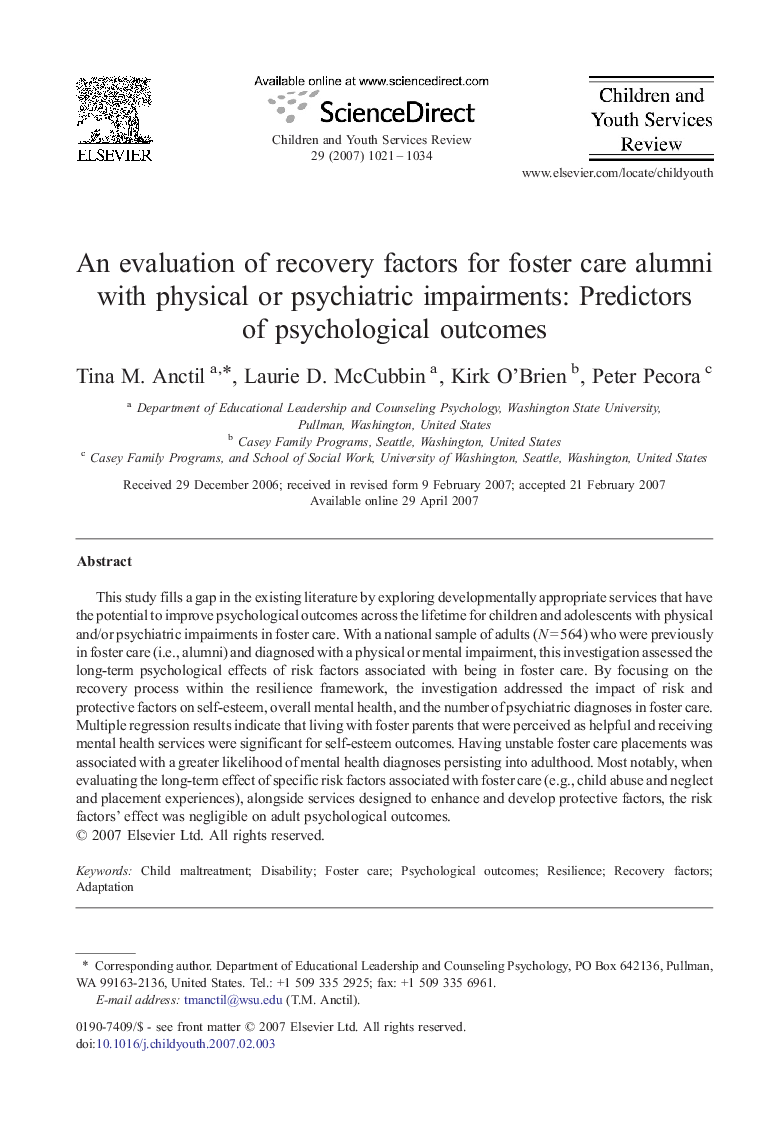| Article ID | Journal | Published Year | Pages | File Type |
|---|---|---|---|---|
| 347595 | Children and Youth Services Review | 2007 | 14 Pages |
This study fills a gap in the existing literature by exploring developmentally appropriate services that have the potential to improve psychological outcomes across the lifetime for children and adolescents with physical and/or psychiatric impairments in foster care. With a national sample of adults (N = 564) who were previously in foster care (i.e., alumni) and diagnosed with a physical or mental impairment, this investigation assessed the long-term psychological effects of risk factors associated with being in foster care. By focusing on the recovery process within the resilience framework, the investigation addressed the impact of risk and protective factors on self-esteem, overall mental health, and the number of psychiatric diagnoses in foster care. Multiple regression results indicate that living with foster parents that were perceived as helpful and receiving mental health services were significant for self-esteem outcomes. Having unstable foster care placements was associated with a greater likelihood of mental health diagnoses persisting into adulthood. Most notably, when evaluating the long-term effect of specific risk factors associated with foster care (e.g., child abuse and neglect and placement experiences), alongside services designed to enhance and develop protective factors, the risk factors' effect was negligible on adult psychological outcomes.
